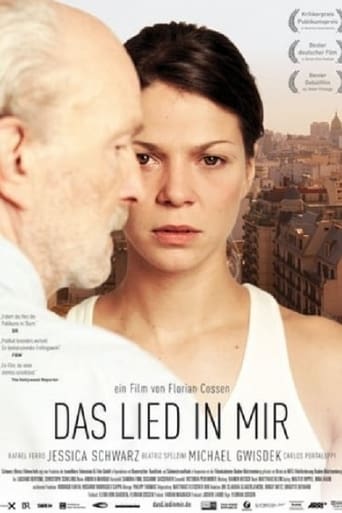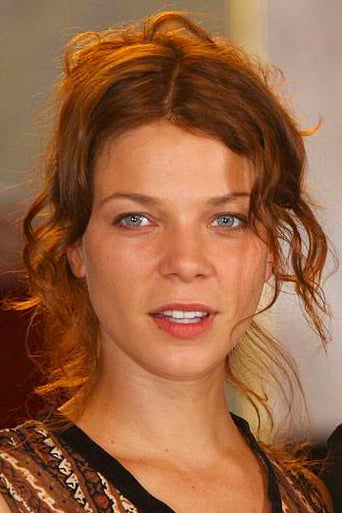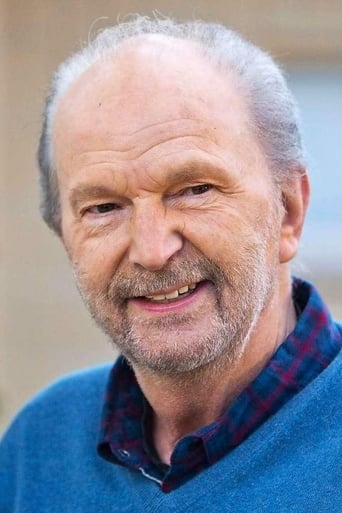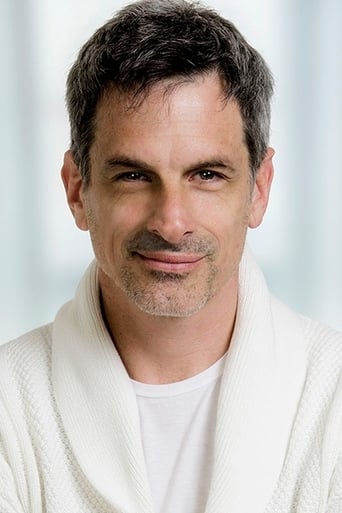

The Day I Was Not Born (2010)
During a stopover in Buenos Aires on her way to Chile, 31-year-old Maria recognizes a nursery rhyme. Maria doesn't speak a work of Spanish, but without understanding what she is singing, she remembers the Spanish lyrics. Disturbed and thrown off course, she decides to interrupt her journey and wander through the unfamiliar city.
Watch Trailer
Cast


Reviews
Thanks for the memories!
This story has more twists and turns than a second-rate soap opera.
There is, somehow, an interesting story here, as well as some good acting. There are also some good scenes
The storyline feels a little thin and moth-eaten in parts but this sequel is plenty of fun.
:The day I was not born. ........................ Maria, a competitive swimmer from Germany is on her way to Chile. At Buenos Aires airport, waiting for the connecting flight, she hears a mother singing to her daughter a Spanish nursery song. Maria starts weeping. The melody she hears awakes memory coming back deep inside her as the song in me. The German title of the movie. Much later she understands that her own mother sang it before her parents where caught by the dark times of the Argentinean military dictatorship. Told by her aunt Estella, the sister of her mother. All this when her passport and ticket is stolen and the police asks her to wait. She finds a hotel and phones her father, telling what has happened but that everything is fine, nothing to worry. But her worried father joins her. Worried not as father for a daughter in trouble but that the hidden truth about her past will emerge and the lies must be faced. Anton tells everything: her parents are not her parents and that her parents knew Anton and his wife. As foreign staff of a German business in Argentina he stole her as baby and could do it. More than 30 000 disappeared during the time of the Argentinean military dictatorship. When everything is said Maria contacts and visits her family. Alone. Without Anton. Estella, her mothers sister gives her a box with pictures of her as baby with her parents. She listens to a tape with the song she heard at the airport, her mothers voice. Maria is helped and supported by the police Alejandro, her translator. They start an affair with him. She asks if he does now the same as she: asking his father, a police, what he did then? But he is too much a coward, afraid to discover what his father did. He decides to live with unanswered questions of the dark past. Maria now knows the truth and what happened, asks Anton: "Why?" Anton: "We wanted you." Was it so simple? And Marias simple answer: "He is my father." Which he legally is not but the relation of all these years. Estella comes to the hotel and wants that justice must have its course. Now. Stealing a baby is a crime. Maria answers: "He is my father" and Estella: "I accept for your sake" and Anton goes free. Again. Is that enough? Seen against the background of what has happened? Estellas question is not asked then, yesterday, when everybody had its reason to be careful. The German second generation asked our parents what they had done during the brown years and after. The answer was a looking-away-answer. Why? They had nothing to fear. Only to loose respect in the seventies by them who asked, their children. Did not the same happen here: Anton and Maria loosing respect in the eyes of Estella and Marias family? Even then that the bondage with Anton was strong, build by all these years of togetherness: stronger than juridical law. The film ends that we see Maria walking the street of Buenos Aires, the camera following her. It seems to be an open end: the last word is not yet said. And can be said beyond the movie. Marias conscience vs Argentinian law.
The basic plot of Das Lied in mir (man/woman finds out he/she was adopted) has been done and redone a thousand times and the first half hour of the film does little to convince the viewer it is going to be any different. Most situations are predictable and the policeman subplot is hard to believe. But as the film progresses newcomer director Florian Cossen shows absolute control of the story, with subtle plot changes and charismatic characters, not to mention the spectacular photography and music. It really grows on you.Having seen my fair share of German movies in the last years I was also pleased in finding "new" faces in the cast - also excellent in the Argentinian side.
German screenwriter and director Florian M. Cossen's feature film debut which he co-wrote with German producer and screenwriter Elena von Saucken, is a German-Argentina co-production which was shot on location in Buenos Aires, Argentina and produced by Fabian Maubach and Jochen Laube. It tells the story about Maria, a 31-year old competitive swimmer from Germany who is traveling to Chile. Maria's plane makes a stop in Buenos Aires and while she is waiting on the airport, she recognizes a nursery rhyme playing on a radio and is so affected by it that she misses her plane to Chile and loses her passport. After finding herself a hotel in Argentina, Maria contacts the police about her passport and is told to wait. Maria is still intrigued by the song which reminded her of her childhood, but when she surprisingly encounters her father Anton at the hotel where she is staying, he makes a shocking revelation that changes her perception of her own identity.Acutely and precisely directed by first-time director Florian M. Cossen, this finely paced fictional tale which is narrated from multiple viewpoints though mostly from the main character's point of view, draws a humane portrayal of a woman's sudden confrontation with long kept secrets about her origins, her dedicated search for the truth about her family history and her relationship with her father. While notable for it's gritty and naturalistic urban milieu depictions, fine cinematography by German cinematographer and art direction by Victoría Pedemonte, this character-driven, dialog-driven, narrative-driven and conversational directorial debut which examines themes like identity, family relations, betrayal and love contains an efficient score by composer Matthias Klein.This humorous, romantic and poignantly atmospheric parable which depicts two merging and condensed studies of character, is impelled and reinforced by it's stringent narrative structure and the emphatic and involving acting performances by German actress Jessica Schwarzin, German actor and director Michael Gwisdek, Argentinian actor Rafael Ferro and Argentinian actress Beatriz Spelzini. A subtle, gripping and invariably engaging drama which gained, among other awards, the award for Best Cinematography Matthias Fleischer at the 31st Bavarian Film Awards in 2010, the Public Award for the most popular film and the FIPRESCI Prize at the 34th Montreal World Film Festival in 2010 and the award for Best Debut Film at the 32nd Biberach Film Festival in 2010.
I had the misfortune of having to watch this boring movie.The story has been told a thousand times before: a young adult discovers she was adopted and goes on the search for her real parents.Apart from the fact that this is no original idea for a movie any more (for 50 years I guess) this flick tops it by being extremely boring.Any of the gazillions cheap Sunday afternoon cable flicks showing you the exact same "hunt-for-real-parents" schmooze is better than this epic fail.Germans may make good cars, but they make lousy movies.Don't waste your time.




